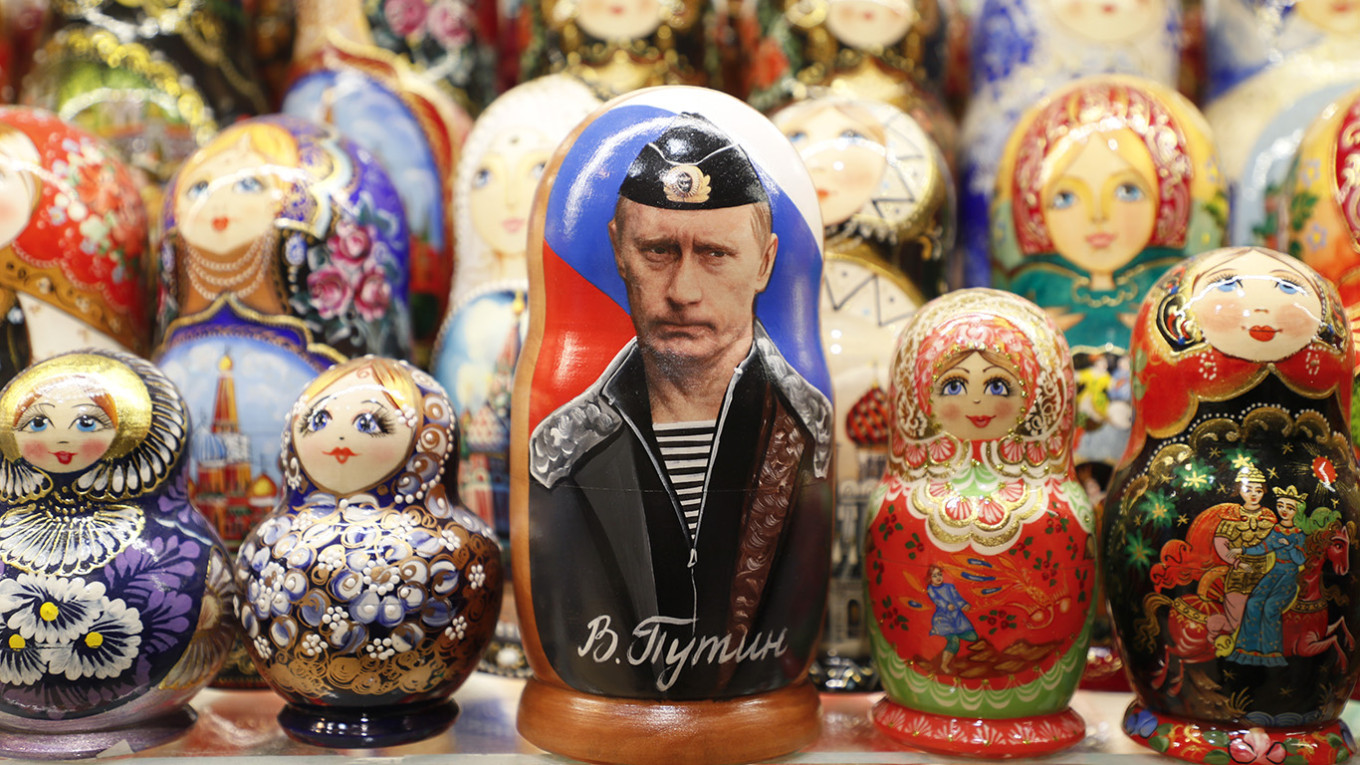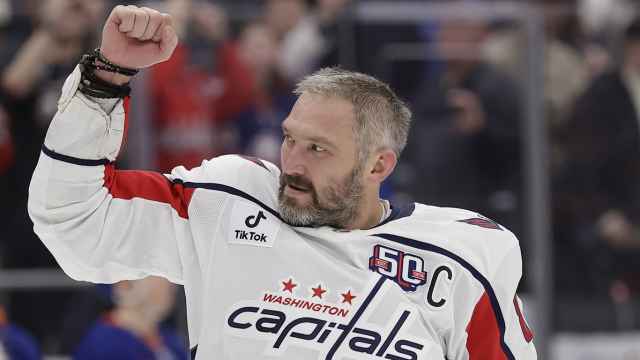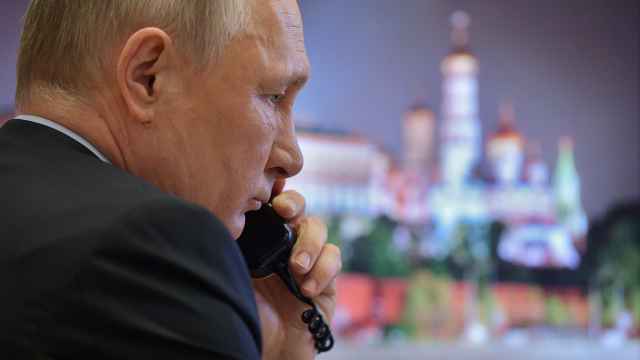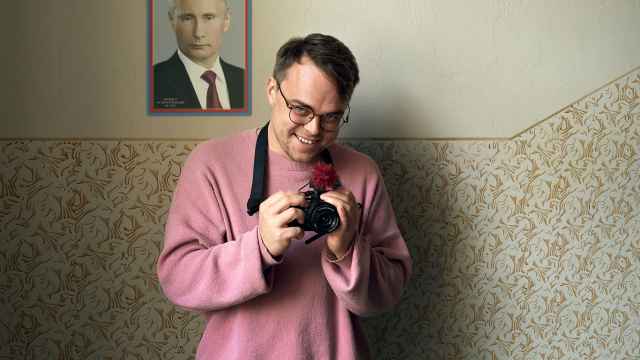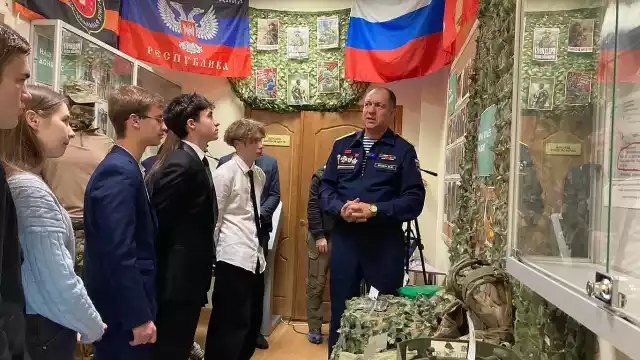The Russian government has approved a bill on criminalizing foreigners who have committed “Russophobia”. This even applies if the “acts of Russophobia” are committed against their own countrymen, not Russian citizens. The deputies claim that the law is directed only against officials. But who will believe them today?
Discussions to enshrine Russophobia in legislation have been going on since the beginning of Russia’s aggression against Ukraine. For example, at the end of 2023 the Ministry of Internal Affairs proposed defining Russophobia as a “prejudiced, hostile attitude towards Russian citizens, the Russian language and culture, expressed, among other things” expressed in ways ranging from the attitudes of individuals to the policies of “unfriendly” states.
The origins of the concept of “Russophobia” go back to the 19th century, which it was used to denounce foreign critics of Russia's foreign policy.
According to historian Konstantin Dushenko, European Russophobia emerged in the 1830s. The first was Great Britain, where the radical wing of the Whig party began to brand opponents who deliberately exaggerated the “Russian threat” and thus demanded more appropriations for the development of the fleet as Russophobes. At the time, the Russian Empire’s advances in the Middle East caused concern in London.
At the same time, the concept of Russophobia appeared in Germany. It was used by conservatives - and also to denounce those who talk too much about the threat from the East, while ignoring it from the West, i.e. from France. The ideological component of the German discussions was far greater than the British.
Throughout the 19th century, the concept of Russophobia both in Russia and in other European countries usually appeared in a foreign policy context. But other interpretations gradually emerged.
In 1839, the French writer Marquis Astolphe de Custine visited Russia. Four years later, he published well-known travel notes that critically described Tsar Nicholas I's Russia. In private correspondence, the poet and vice-director of the Department of Foreign Trade of the then Ministry of Finance of Russia, Pyotr Vyazemsky, accused the author of “suffering from Russophobia” and being biased against the people.
During the Soviet era, Russophobia was not a mainstream concept. It was sometimes used by emigrants. For example, President Vladimir Putin's favorite philosopher Ilya Ilyin created the concept of a Russophobic Western elite that wanted to dismember Russia.
The return of the stigmatizing term to the current public discourse dates back to late Soviet times, when Soviet ideology was blended with Russian ethnic nationalism. In the 1980s, it became widespread in the émigré press as well. However, Igor Shaforevich's 1982 pamphlet of the same name – with its unambiguous antisemitic content and terrible hatred of intellectuals – caused a special resonance.
In the 1990s, amid the far from successful liberal-democratic reforms, in the depths of the patriotic opposition the invective accusing Yeltsin, oligarchs, the West and Jews of committing genocide of the “Russian people” was spreading. The situation in Chechnya and the mass expulsion of Russians and Russian speakers added fuel to the fire. Russia clearly needed to build a civil society and develop a new civic identity.
Under Putin, the state was initially alien to extremes, so many Russian ethnic nationalists were at risk. Ideological protectionism was introduced gradually: initially in response to the political crisis of 2011-2012, then the annexation of Crimea and the growing confrontation with the West. However, it did not touch on “Russophobia” - until now! In 2013, amendments were introduced that presupposed imprisonment for “insulting the feelings of believers”. The following year, justification of Nazism was criminalized, including denial of the facts established by the verdict of the Nuremberg Tribunal.
During 2000-2010, Russophobia itself did not remain only a part of the national power field with which parties such as the CPRF and LDPR actively flirted. Gradually, the concept entered the quasi-scientific discourse. Since the late 2000s, the growing fascination with soft power has also given rise to a set of relevant articles seriously stigmatizing “Western Russophobia”. Some relatively moderate authors tried to see it as a bias toward Russia but did not study it impartially.
The concept can be found in the rhetoric of the Russian Foreign Ministry even in the noughties. But these uses are isolated, mostly in the context of relations with the Baltic states. It has been used more frequently since 2014 due to the Ukrainian crisis and the Kremlin's interventions.
A search of the Kremlin's website also shows that in the 2000s, “Russophobia” was not in Putin's vocabulary. Furthermore, when asked by a French journalist in 2006 whether he saw Russophobia in the West, Putin was evasive but clearly did not see any: “I see that not everyone in the West has gotten used to it, not everyone has realized that the Soviet Union has disappeared from the political map of the world and a new country has appeared with new humanistic, ideological attitudes underlying its existence.”
Russophobia began to enter the presidential discourse only in 2014. It is noteworthy that chronologically earlier in his presence, the director of the Institute of History of the Russian Academy of Sciences, Yuri Petrov, said that a generation of Ukrainians was raised “on the basis of chauvinistic nationalism and Russophobia.” It would be wrong to assume that Petrov introduced Putin to the concept. But the willingness of academics who purport to speak the truth to wist reality whitewashes these fringe views for politicians to adopt.
After Feb. 24, 2022, the definition of Russophobia blossomed to include everyone who speaks out against Russian aggression in any way. It created the narrative that Russians are criticized for who they are, not what they do.
It is no coincidence that the authorities scare the population with the genocide of the Soviet-Russian people in the past, during World War II, and the genocide of Russians in Donbas today. Naturally, home-grown scholars are trying to give this concept “academic respectability”. Even “Notebooks on Conservatism,” which once positioned itself as an “intellectual platform,” has stooped to publishing pamphlets under the guise of scholarly articles.
The state is increasingly flirting directly with Russian nationalism, albeit while maintaining the rhetoric of friendship between peoples, which is one of the central themes in the new state-mandated. It is also becoming important for Putin. In the fall of 2023, at the plenary session of the World Russian People's Council, he said:
“Without Russians as an ethnos, without the Russian people, there is not and cannot be a Russian world and Russia itself. This statement does not contain any claim to superiority, to exclusivity, to chosenness. It is simply a fact, just like the fact that our Constitution clearly enshrines the status of the Russian language as the language of the state-forming people”.
At the same time, Z-militarists began to blend Russian nationalist rhetoric with imperialism. Yevgeny “Zakhar” Prilepin, who claims a central place in contemporary pro-war literature, began doing this in the 2010s. For him, Russians are both an ethnos, a certain cultural field and a sacred power. So, in principle, anyone can be recognized as Russian if, for example, today he fights against Ukraine and is “sick of Russia.” Therefore, Prilepin can simultaneously call for the intensified development of Russian culture, talk about “the white man's burden,” or glorify the Donetsk Pyatnashka international brigade. The fire of the fields generates a special space of “our own,” automatically excluding “others,” “not ours,” and thus “traitors.”
Similar views are common among a significant part of pro-war “correspondents”. For example, WarGonzo who has more than 1 million subscribers wrote in September about the range of people you could find stationed in a trench. “Just a few years ago it was impossible to imagine these people at the same table, they had nothing to do with each other. But now this is the best metaphor for the Russian world.”
In building the “Russian world,” Putin's state has always seen Russian speakers as a resource, and therefore has often taken note of those who are willing to play such games.
Russian speakers from the Baltic states were a bargaining chip, a way to put pressure on the elites. In Ukraine, it turned out to be much more than that. Back in the mid-2010s, the radicals of the “Russian Spring” were exhausted, and those Russian-speaking Ukrainians who remained loyal to their country, but who culturally did not consider themselves alien to Russia, found their lives endangered.
Today, the state is also not ceremonious with Russians and ethnic Russians: those who agree are sent to the front, those who disagree are declared traitors.
From the Kremlin’s point of view, Russians are not an ethnicity, but an adjective, i.e. those who are attached to the state and the interests of the elite. So, while decrying international criticism as bigotry against Russians, Moscow is destroying its own country.
A Message from The Moscow Times:
Dear readers,
We are facing unprecedented challenges. Russia's Prosecutor General's Office has designated The Moscow Times as an "undesirable" organization, criminalizing our work and putting our staff at risk of prosecution. This follows our earlier unjust labeling as a "foreign agent."
These actions are direct attempts to silence independent journalism in Russia. The authorities claim our work "discredits the decisions of the Russian leadership." We see things differently: we strive to provide accurate, unbiased reporting on Russia.
We, the journalists of The Moscow Times, refuse to be silenced. But to continue our work, we need your help.
Your support, no matter how small, makes a world of difference. If you can, please support us monthly starting from just $2. It's quick to set up, and every contribution makes a significant impact.
By supporting The Moscow Times, you're defending open, independent journalism in the face of repression. Thank you for standing with us.
Remind me later.



